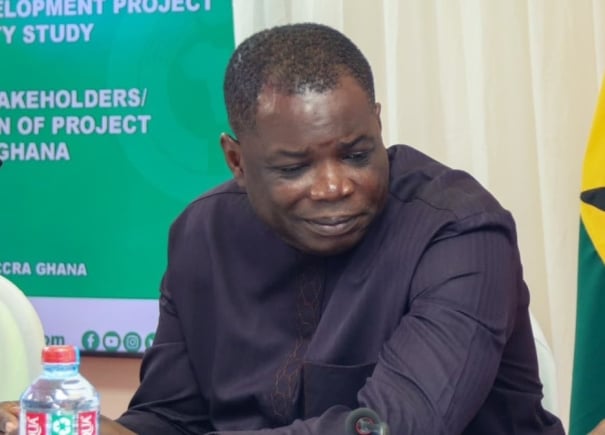The Tamale-Savelugu-Walewale road project in Ghana has become embroiled in controversy, with allegations of financial mismanagement and contractual breaches against the Indian construction firm, JMC Projects. The project, a 113-kilometer stretch intended to improve transportation infrastructure in the northern part of the country, has stalled despite a substantial upfront payment to the contractor. Ghanaian Minister for Roads and Highways, Governs Kwame Agbodza, has accused JMC Projects of receiving $29.6 million, representing 20% of the total $158 million contract sum, while completing only a negligible 1% of the first phase of the project. This discrepancy between payment and progress has raised serious concerns within the Ghanaian government and sparked calls for legal action.
The minister’s accusations paint a picture of a contractor seemingly intent on exploiting the Ghanaian government. After receiving the substantial initial payment, JMC Projects allegedly attempted to change its name to Kalpatura Projects, a move that raises suspicions of an attempt to obscure its identity and potentially evade accountability. Furthermore, despite its minimal progress on the project, the company reportedly demanded an additional $14 million, citing mobilization costs, a request the Ghanaian government rightfully refused. The sequence of events suggests a pattern of financial maneuvering and a lack of commitment to fulfilling the contractual obligations.
The situation deteriorated further when JMC Projects formally served notice to terminate the contract on March 11, 2024. This action, taken months before a public ceremony marking the project’s supposed resumption, highlights a significant disconnect between the contractor’s intentions and the government’s understanding of the project’s status. Adding to the controversy, the contractor allegedly attempted to secretly move its equipment from the Ghana project site to another project in Guinea without proper clearance from the Ministry of Roads and Highways. This attempted relocation further reinforces the perception that JMC Projects was prioritizing its own interests over its contractual commitments to the Ghanaian government.
The timeline of events reveals a concerning lack of oversight and communication. Former Vice President Dr. Mahamudu Bawumia presided over a sod-cutting ceremony on June 17, 2024, signaling the project’s resumption after debt restructuring. However, the Minister for Roads and Highways revealed that the Vice President was apparently unaware that the contractor had already terminated the contract three months prior. This lack of awareness at such a high level of government underscores the communication breakdown surrounding the project and raises questions about the due diligence performed before the public ceremony.
The financial implications of this stalled project are particularly troubling for Ghana. The $29.6 million paid to JMC Projects represents a significant investment for a developing nation. Minister Agbodza expressed his dismay at this situation, noting that while the government struggles to settle debts exceeding GH¢20 billion owed to local contractors, a substantial sum was readily advanced to a foreign contractor who delivered virtually no tangible results. This contrast highlights the apparent prioritization of a foreign entity over local businesses and raises concerns about the allocation of limited resources.
The Ghanaian government is now left to grapple with the aftermath of this failed project. The Minister for Roads and Highways has made it clear that the government intends to pursue legal action to recoup the funds paid to JMC Projects. He has warned the company to either return to the site and complete work equivalent to the $30 million paid or face the consequences of legal proceedings. This firm stance underscores the government’s determination to hold the contractor accountable and retrieve the misappropriated funds. The case serves as a cautionary tale about the risks associated with international contracting and the importance of thorough due diligence and stringent oversight to protect public funds. The future of the Tamale-Savelugu-Walewale road project remains uncertain, but the Ghanaian government’s pursuit of legal action signals a commitment to ensuring accountability and preventing similar occurrences in the future.


